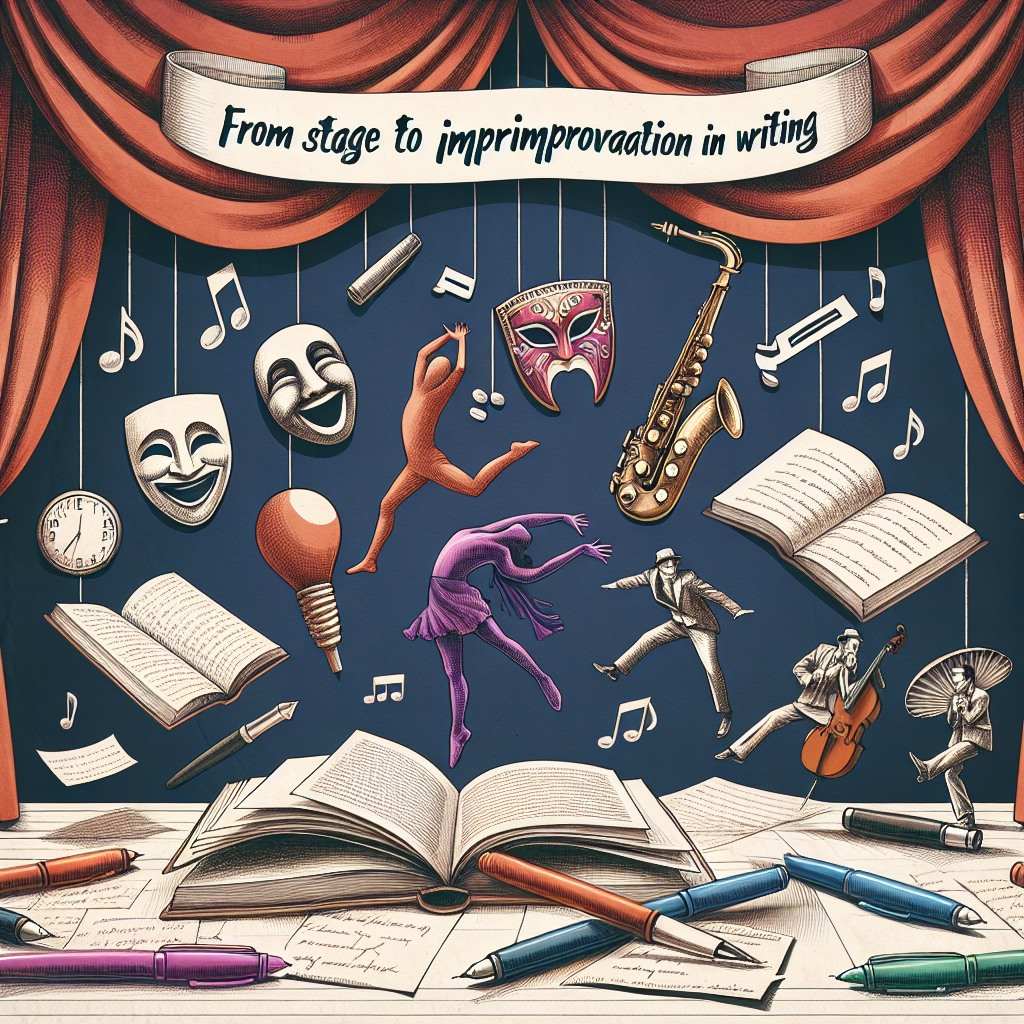Title: From Stage to Page: The Art of Improvisation in Writing
In the world of performance, improvisation is a skill revered not just for its spontaneity but for its capacity to produce moments of raw, unscripted brilliance. It’s an art form primarily associated with theater and jazz, where artists are tasked with creating in real-time, drawing from an inner reservoir of intuition, creativity, and experience to connect instantly with their audience. But improvisation is not confined to the stage or the concert hall; it is also a vital, if less heralded, component of the writer’s craft.
The Intersection of Improvisation and Writing
Writing is traditionally seen as a solitary and deliberate act, where ideas are carefully considered, edited, and polished before being shared with readers. However, many writers embrace improvisation as part of their creative process, using it to break free from writer’s block, explore new ideas, and bring a sense of immediacy and authenticity to their work. Improvisation in writing is not about abandoning structure or discipline, but about finding freedom within it, and allowing the subconscious to surface and shape the narrative.
Embracing the Unknown
Improvised writing encourages authors to venture into the unknown. Much like actors stepping onto a stage without a script, writers who embrace this approach allow their stories to unfold organically. This can be particularly effective in creative writing exercises such as free writing, where the writer pens words continuously for a set period without worrying about coherence, grammar, or punctuation. The result is often surprising and can reveal hidden emotions or ideas that might not have emerged through a more methodical approach.
Crafting Characters and Plotlines
Improvisation can breathe life into character development and plot creation. Writers improvising dialogue, for example, may find their characters speaking more naturally or venturing into unexpected discussions that feel more authentic. This technique mirrors how actors inhabit their roles, allowing characters to evolve based on decisions made in the spur of the moment. Authors can use improvisational techniques to pivot their plots, making unexpected changes that can lead to richer, more textured narratives.
From Spontaneity to Structure
Though improvisation is rooted in spontaneity, the transition from stage to page requires the synthesis of spontaneity with structure. Writers may begin with improvisational drafts that capture the raw energy and essence of their ideas. However, a critical phase follows where these drafts are refined and shaped into a coherent form. It’s in this balance between the unfiltered and the polished that improvisation in writing truly shines.
The Benefits of Improvisation
One of the greatest benefits of incorporating improvisation into writing is the potential for increased creativity and innovation. By liberating themselves from the constraints of over-planning, writers often discover new directions and original ideas that might have remained dormant in an overly regimented environment. This spontaneity can also translate to a sense of urgency and vitality in the final work, engaging readers who will sense the vibrant energy of creation that lies beneath the surface of the prose.
Moreover, for writers suffering from the dreaded writer’s block, improvisation offers a way to break through the barriers of self-doubt and perfectionism. The act of letting go and allowing words to flow without judgment can reignite the passion and joy of writing, making it more of an adventure than a task.
Conclusion: The Art of Balancing Chaos and Control
Incorporating improvisation into writing is about embracing both chaos and control. It’s about trusting oneself and the creative process, letting ideas converge freely before applying the discipline necessary to give them form and meaning. As in theater, the art of improvisation in writing is about preparation meeting opportunity—a readiness to seize an unguarded moment and let it lead the way.
Whether you’re an aspiring novelist, a seasoned playwright, or an experimental poet, allowing improvisation into your writing toolset can open new pathways to creativity. In bridging the worlds of stage and page, improvisation invites writers to rediscover the magic of storytelling, one unscripted word at a time.
